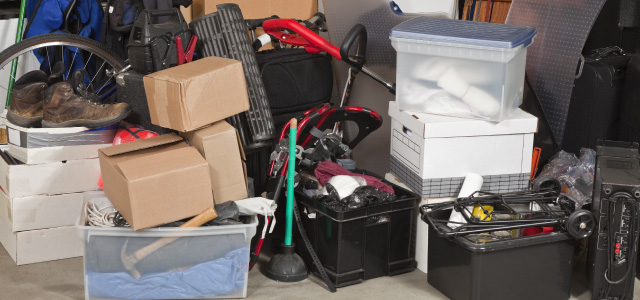“Do you want this vase?”
“How about these overalls from when you were a toddler?”
“Not even the china cabinet?”
If those questions sound familiar, you might be a millennial whose baby boomer parent is downsizing — and trying to give you all their stuff.
Many of us have a simple answer: No. We don’t want it.
It’s not because we don’t love our parents, and it’s not because we’re ungrateful for their generosity. But we appreciate minimalism and want to avoid clutter in our lives.
If you want to avoid becoming a repository for your parents’ possessions — without hurting their feelings — keep reading. I asked experts in psychology, elder care, and organization for their tips on what to do.
1. Be kind
The most important rule is also the simplest: Don’t be a jerk.
Here are some phrases she suggested using:
- “It’s so special you want to pass that down to me.”
- “That’s such an interesting collection of [Russian nesting dolls].”
- “I don’t want to disappoint you, but I simply don’t have room for any extra furniture.”
- “I don’t think I’d use that, but thanks for offering.”
Lastly, she offered one important reminder: “If the person offering their possessions to you has an emotional reaction that makes you feel bad, they are grown-ups and can manage disappointment. It’s not your job to alter your life to protect other people’s emotions.”
2. Ask questions
Don’t understand why your dad keeps trying to give you his beer can collection?
It might not be about the items themselves, explained Joy Loverde, author of the forthcoming book Who Will Take Care of Me When I’m Old? It might be about leaving a legacy.
If you think that’s the case, Loverde suggested redirecting the conversation with questions. Learn more about the item by asking your parent “Where did you get it?” or “Why does it mean so much to you?”
Asking questions, she said, “conveys validation and respect” — both of which will go a long way in smoothing your rejection.
3. Explain your reasons
If your parent understands why you can’t take their items, they might be more willing to accept your decision.
And no, your reason shouldn’t be “I don’t like your taste” or “That was a silly purchase.”
Instead, explain your reasons truthfully and kindly. It could be that you don’t have enough room or that you live a minimalist lifestyle.
If you don’t have a specific reason, your stance can be that someone else would appreciate it more.
Ann Zanon, a professional organizer in Connecticut, suggested saying the following: “I understand this tschotske is important to you — but for me, it doesn’t have any memories tied to it. Let’s let it go to a family who will create their own memories with it.”
4. Take something
Although you have the right to refuse every single thing your parent offers, it might be wise to acquiesce once in a while.
“Keeping a few of the small items helps to soften the blow,” said Eddie Chu, owner of home care company Qualicare. “People hold on to items for the memories associated with them. … This serves the same purpose of keeping the memories alive while also being efficient with your available space.”
In other words, you don’t have to take the entire teapot collection — but if it’s important to your parent, maybe take one. You’ll demonstrate that you respect their possessions (and your space).
5. Find an alternative home
It’s wise to help your parent find an alternative home for all the stuff you don’t want. One of the best options is another friend or relative.
“I’ve seen a lot of distant relatives willing to store or keep the antique furniture, which typically keeps our client happy that it stays in the family,” said Chu.
Just think: Aunt Edith probably would be delighted to add that hutch to her collection — and your dad likely would be happy to see it there rather than in the dumpster.
6. Sell or donate the rest
No willing takers? Then it’s time to sell or donate whatever remains.
You could hold a garage sale, bring the items to a consignment shop, or sell them online through eBay, Craigslist, or Letgo. Use some of the money to fund a bonding activity. Mom might not miss that dining room table so much if it means a day out!
If it’s more than you can manage, you might want to organize an estate sale. Look for companies in your area or consider a company like Everything But The House (EBTH). Available in 27 cities, EBTH takes care of the entire process — sorting, photographing, cataloging, and arranging payment and delivery — for you.
Of course, you also can donate the items to a local charity.
If your parent resists, ask them this question from Linda Barlaam, a professional organizer with House to Home Organizing: “Wouldn’t it be better for someone to actually use or want the items, as opposed to them sitting in storage?”
As our parents age, more of us are going to face these issues.
By demonstrating we care and showing respect, we can navigate these delicate waters and keep our relationships strong.



